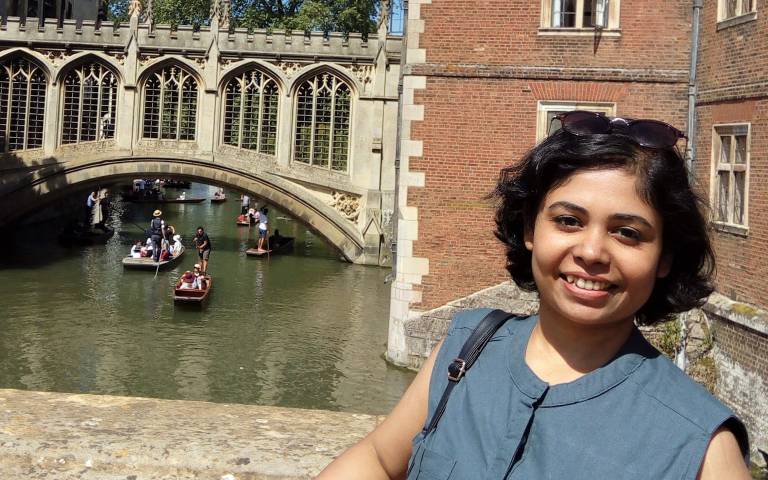Interview: Why study Sustainable Heritage MSc at UCL?
16 April 2019
Sohini Nandi tells us about her experience studying UCL's Sustainable Heritage MSc

What was your academic background before joining the Sustainable Heritage MSc?
I studied Architecture at Biju Patnaik University of Technology in India and subsequently post-graduate Architectural Conservation at the School of Planning and Architecture in India.
What inspired you to pursue a career in Sustainable Heritage?
A project in my previous post-graduate programme was aimed at developing a sustainable heritage development plan for a World Heritage Site by incorporating local values. This made me realise that heritage doesn’t just belong to the experts, it also belongs to a wide spectrum of stakeholders. I wanted the opportunity to study the principles of sustainable heritage and learn how to implement them.
What made you choose the Sustainable Heritage MSc at UCL Institute for Sustainable Heritage?
The programme promised something different and more than my previous studies. The holistic curriculum meant that I would be able to study heritage science along with the ideologies of socio-cultural sustainability. A multi-disciplinary faculty was a major attraction point for me.
What have you enjoyed most about the programme?
I enjoyed working with a multi-disciplinary and international class under the guidance of a multi-disciplinary faculty and professional experts. The Heritage Malta work experience was also very interesting as we were responsible for delivering a project report that would be reviewed and implemented by the authority.
What is your dissertation topic?
My dissertation topic is ‘Sustainable methods for thermal upgrading of post-war prefab timber Swedish houses in the UK’. I am looking into the impact of present thermal insulation methods on the heritage values of these unlisted historic houses. Through discussions with house residents and monitoring environmental data, I will try to understand the associated heritage values and how well the buildings are behaving as a buffer. By understanding the drivers and prohibitors of interventions, I aim to offer a method that both increases thermal efficiency and upholds the cultural significance.
What skills have you gained from the programme?
As well as furthering my existing skills of heritage building conservation, the programme has also taught me about the conservation of museum collections, methods of heritage impact assessment and environmental impact assessment.
Has the programme opened up career possibilities for you and is so, what?
The programme has opened up many other career possibilities related to impact assessment studies, museum sector and energy efficiency intervention works to historic buildings.
Would you recommend the MSc to other students, and if so, why?
I would definitely recommend this programme to fresh graduates, as well as experienced heritage professionals. The study of sustainable heritage is the only way to take heritage forward for future generations by caring for environmental, economic, social and cultural aspects.
What advice would you give to prospective students who are interested in pursuing career in Sustainable Heritage?
I would advise prospective students to come with an eagerness to learn and work with a multi-disciplinary team. It is a lifetime opportunity to learn about diverse heritage related topics and get involved in projects led by professional experts.
What are your plans once you have graduated?
I will be continuing a training placement with Historic England (London) and will actively look for a job in the UK and Finland.
 Close
Close

